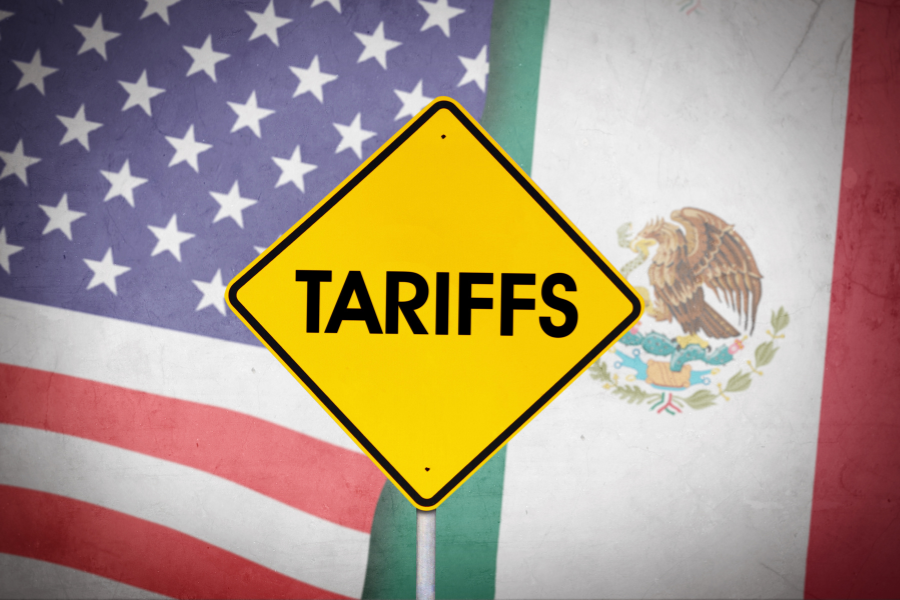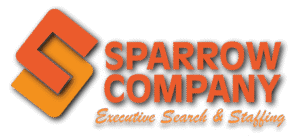
Trade rules are changing, and the impact is immediate for manufacturers. New tariff proposals and USMCA requirements are more than policy debates. They are shaping how companies plan, hire, and control costs in Mexico. For plant managers and operations executives, these shifts show up in day-to-day decisions, and they play out in three big ways: hiring priorities, salary expectations, and operational strategies.
At Sparrow, we work with manufacturing companies every day to adapt to these changes. Policy changes may feel distant, but their impact shows up quickly on the plant floor in team structures, skill needs, and labor costs. That’s why staffing decisions are now just as critical as production ones.
Tariffs and Workforce Compliance
Mexico’s Economy Ministry recently introduced a proposal to impose new import tariffs on automotive and manufacturing goods as part of the country’s draft 2026 budget. The measure aims to address trade imbalances and is projected to generate around US $3.7 billion (about 70 billion pesos) in revenue for their government.
The tariffs would apply to products imported from countries that do not have trade agreements with Mexico. Officials have emphasized that the changes are intended to align with Mexico’s international treaty obligations, including commitments under USMCA.
At the same time, manufacturers must still navigate the rules already in place under USMCA. The agreement removes most tariffs across North America, but only if products qualify. To claim duty-free treatment, companies must show that most of the components come from within North America. In the auto industry, there is an added rule: a share of the vehicle’s value must come from workers earning higher wages. That is where documentation becomes critical. Companies must maintain accurate records to verify compliance, and even small gaps can result in unexpected duties or delays.
For manufacturers with operations in Mexico, this adds two layers of pressure. They must prepare for potential new tariffs while also maintaining the staffing and expertise needed to maintain conformity with USMCA rules, keeping their existing USMCA benefits in place. That is why compliance and documentation have moved to the forefront. Even small gaps in paperwork can leave a company exposed to new costs.
To manage the load, some operations may bring on permanent compliance specialists, while others will need to rely on contract staff to handle documentation surges. For example, a plant importing components from countries without trade agreements may want to add compliance staff in advance of shipments to reduce the risk of unexpected costs. That’s why staffing for compliance is no longer a side issue. Today, it is central to protecting operations against trade risk.
Rising Costs and Workforce Strategy
Building the right team is no longer just about production lines. It’s about protecting the business against tariff risk now and in the future. Tariff proposals and rising labor costs can change quickly, so workforce strategies need to leave room for what comes next.
One driver of these rising costs is wage policy. Mexico’s government raised the minimum wage by 12% in early 2025, and the increase is already pushing salary expectations higher across industries. Even positions that pay well above the minimum are being adjusted upward as employers compete for talent.
It’s not just Mexico’s new proposal driving change. USMCA rules are already shaping how manufacturers plan their teams and manage costs. Tariffs have become part of workforce planning, influencing decisions from compliance staffing to payroll. At Sparrow, we help companies turn these challenges into clear staffing strategies.
Flexibility and Next Steps for Operations Leaders
Mexico’s current proposal shows how quickly trade rules can impact operations and planning. The tariffs are still under review, but manufacturers are already preparing for their potential impact. The companies that plan ahead now are the ones that will stay competitive later.
Rigid staffing models make it hard to keep up with this kind of volatility, which is why leaders need options to scale teams up or down without slowing production. Flexibility is becoming part of the operating strategy, allowing companies to keep plants running through shifting trade rules while also managing rising labor costs without overextending permanent payroll.
Temporary staffing gives manufacturers room to cover immediate needs, while direct hires in critical roles provide long-term stability. Together, this mix creates a workforce that can adapt to uncertainty and gives leaders the ability to prepare, not just react, when conditions change. For plant managers and operations executives, that preparation starts with steps like these:
- Monitor tariff developments closely and assess how potential changes may affect sourcing and costs.
- Review workforce plans to make sure you have the right mix of permanent and flexible staffing to cover compliance and operations.
- Evaluate compliance processes to cut the risk of cost exposure from errors or delays.
- Plan for flexibility so your team can adjust quickly when tariffs are enacted.
With the right staffing blend, leaders are not just reacting to policy shifts. They are staying ahead of them and turning disruption into an opportunity to strengthen operations.
Workforce Strategies That Keep Pace with Policy Shifts
Mexico’s proposal to impose new tariffs on auto and manufacturing imports is the latest reminder that trade policy directly shapes how manufacturers operate. For manufacturers with operations in Mexico, this means workforce strategies need to adapt just as quickly as supply chains, wage policies, and tariff rules. Companies that staff for compliance and flexibility can keep operations steady even when trade rules shift.
Sparrow specializes in helping businesses navigate these changes. If your company is evaluating how USMCA tariffs are impacting Mexico manufacturing hiring, now is the time to strengthen your workforce strategy and stay ahead of disruption. Contact Sparrow Search today and let’s build a workforce strategy that keeps your operations moving forward
